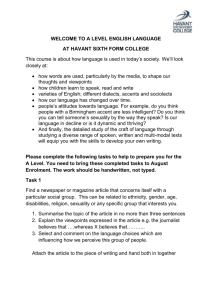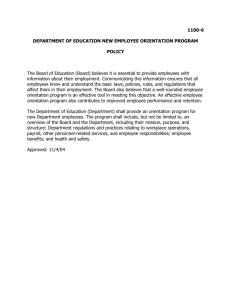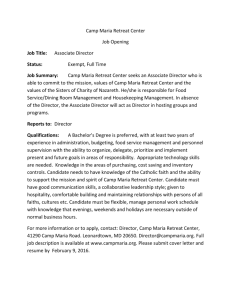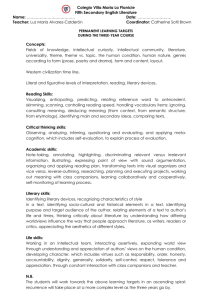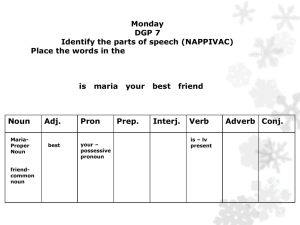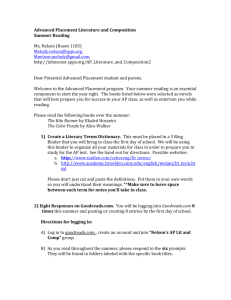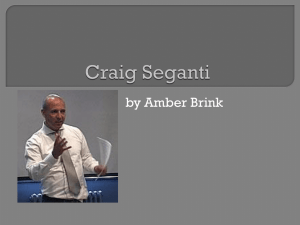I Am David Chapters 4-8 Study Guide
advertisement
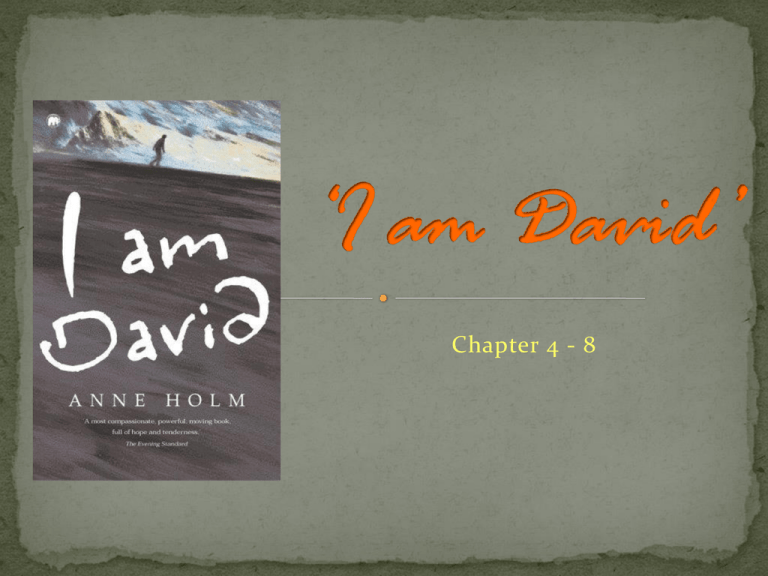
Chapter 4 - 8 1. On page 75, David was enjoying the sound of music until he was rudely interrupted by his attacker. He says, “The wonderful sound of the music lay murdered, crushed and kicked to death by an evil voice”. What literary device is being used here and comment on its effectiveness. The literary device that is used here is personification (something that is not human being given a human quality), where the music almost seems like a human who has been killed. 2. Re read page 75 and comment on what we learn about David from his words and actions during the fight. David believes that hitting another person is cowardly and wrong, as it takes away their freedom. He remains silent until the boy presses him to speak. 3. What reason is suggested for David not fighting back? What further insight (understanding) does this give you into David’s character? David believes that he would be just as bad as the other boy if he fought back and that he would have no right to be free. This is no doubt something that David would have learned at the camp, where he would have seen guards beat prisoners. Those who did the beating would have taken away the freedom, and David never wants to be like such people. 4. Why does David believe that the children are more dangerous than adults? David believes that children will quickly work out that he is very different because he has never played and doesn’t know how to be a child when he is still only 12 years old. 5. David describes Maria’s laughter to sound “like the light tinkling of polished glass” (pg 79). What literary device is being used here and comment on its effectiveness in describing Maria’s voice. This is a simile, and it me think that she has a light, delicate voice that sounds happy. 6. Before David rescues Maria, he asks God not to help him. Why does he ask this? David is afraid that God is doing too much for him and that God will get sick of him. He thinks that if he can do something for God instead (like saving the beautiful girl), than this will make God happy and therefore God might be very willing to help him later on: kind of like doing a deal with God. 7. At first David feels uneasy about staying in the house. What makes him change his mind? David realises that the people really want him to stay – that it will live them pleasure, and he doesn’t want to deny them that. He also feels that it could be advantageous to stay in a house so he can learn more about this world outside of the camp. 8. What important value did Johannes teach David (p92-93)? Johannes taught David to always be polite, to say thank you, even when you might not like the person who gives you something. He meant that David should be in control of his manners and that others should never be able to influence what he was like. 9. David decides to stay a little while longer at the house where he enjoys doing a number of things that he has never before experienced. Make a list of these things, many of which you and I take for granted! David enjoys a variety of things, like taking a bath, drying himself with soft towels, sleeping in a real bed with sheets, having a tablecloth and table that was set with shiny knives and forks, glasses that tinkled, a napkin, plates to eat off (that had flowers on them) and of course, the beautiful, plentiful food.
